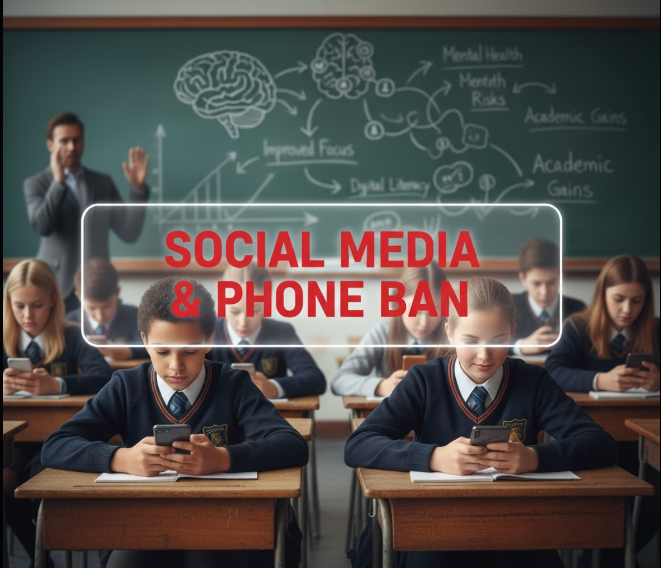
G-Union
News
Oct 10, 2025

The global debate over banning social media and mobile phones has become particularly acute for parents, educators, and policymakers grappling with the well-being of teens and young students. The popular BBC World Service podcast "What in the World" recently investigated the complex scientific evidence surrounding these bans, highlighting the challenging balance between shielding young people from digital harms and preparing them to thrive in an increasingly connected world. This discussion is especially relevant as schools worldwide seek effective strategies to manage technology in the classroom and beyond.
For many parents and teachers, the push for stricter bans stems from palpable concerns about their children's mental health, academic performance, and exposure to cyberbullying. Research frequently points to a disturbing correlation between rising screen time among adolescents—often averaging four to six hours daily—and negative outcomes such as sleep deprivation, reduced physical activity, and increased classroom disruption. Organizations like UNESCO and the OECD have echoed these concerns, with studies indicating that even the mere presence of a phone, whether actively used or not, can significantly impair a student's concentration, requiring up to 20 minutes to regain focus after a non-academic distraction.
While the anecdotal evidence and observational studies paint a clear picture of concern, research into the direct impact of school-based phone bans on these outcomes for young people presents a more nuanced reality. Some international studies, particularly from countries like Spain and the UK, have suggested that prohibiting phones in classrooms can indeed lead to improved test scores, with a notable positive effect often observed among lower-achieving students. This academic uplift is sometimes equated to students gaining an extra week of education, offering compelling support for the restrictive policy approach adopted by many schools globally.
However, a groundbreaking UK study conducted by the University of Birmingham introduced a critical counterpoint, revealing that implementing school-wide phone bans, on their own, did not consistently lead to better mental health, overall well-being, or improved academic grades for students. The researchers found that while these bans marginally reduced phone use during school hours, they did not significantly impact the students' overall daily screen time. This key finding suggests that the pervasive issue of excessive digital engagement and its associated negative consequences for teens extends far beyond the school environment, necessitating broader, more comprehensive interventions that involve home life and leisure time.
A significant counter-argument from digital literacy advocates centers on the idea that blanket bans might be counterproductive for teens and young students. Critics contend that such policies could inadvertently infringe upon children's rights to participate in a digital society and, more importantly, fail to equip them with crucial digital citizenship skills. Instead of simply removing access, these experts argue for a focus on strengthening safety regulations on social media platforms, fostering critical digital literacy among both students and educators, and actively teaching responsible online behavior. Without these foundational skills, adolescents may find themselves ill-prepared to navigate the inherent complexities and risks of the digital world once they gain unrestricted access.
Ultimately, the evolving consensus among policy circles is that there is no single 'silver bullet' solution for managing teens' and young students' relationship with social media and phones. While robust evidence confirms the detrimental effects of excessive use, the data on simple school bans remains mixed. The BBC podcast discussion underscores that effective strategies must transcend punitive measures. Instead, they should integrate comprehensive education on responsible digital use, actively involve parents in guiding their children's online habits, and advocate for significant regulatory changes in platform design to cultivate safer and more beneficial digital spaces for the next generation of learners.
You can learn more about the complexities of this issue on the BBC World Service podcast,